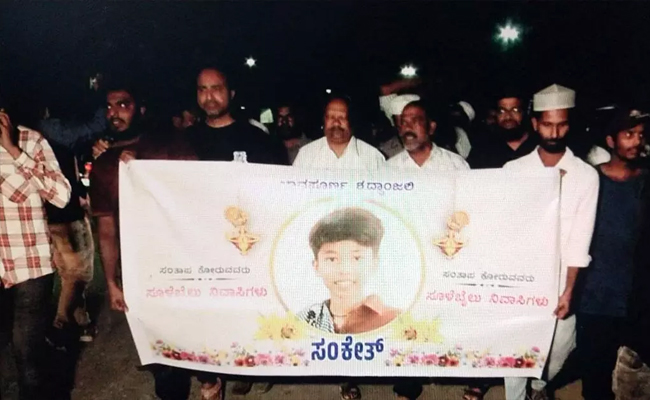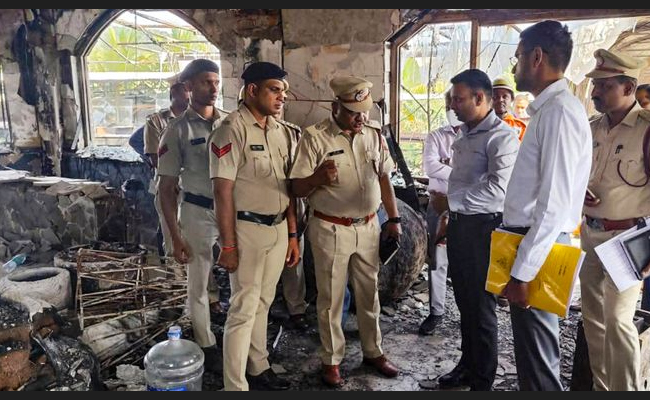English cricketer Ollie Robinson has defended his controversial send-off towards Australian batsman Usman Khawaja during the Ashes series, stating that he "doesn't care" how Australia perceives his actions and that he aims to provide the "theatre of the game."
Robinson dismissed Khawaja for 141 runs on the third morning at Edgbaston, uprooting his off stump as Khawaja attempted to play a shot through the off side. In his celebration, Robinson shouted towards Khawaja and appeared to use offensive language.
Speaking about the incident, Robinson expressed his excitement in claiming such a significant wicket, especially in his first home Ashes series. He acknowledged Khawaja's impressive innings and emphasized the importance of the wicket for the team. Robinson stated, "We all want that theatre of the game, don't we? So I'm here to provide it."
When questioned about whether abusing an opponent could be considered part of the game's theatre, Robinson referred to the passion of the Ashes and mentioned instances where Australian players have behaved similarly towards English teams in the past. He admitted that such actions are not justified, but suggested they happen in the heat of the moment.
"But I think when you're in the heat of the moment and you have the passion of the Ashes, that can happen. We've all seen Ricky Ponting, other Aussies do the same to us. Just because the shoe is on the other foot, it's not received well," he said.
Furthermore, when asked about the potential reception of his celebration by the Australian dressing room, Robinson expressed indifference, stating, "I don't really care how it's perceived, to be honest. It's the Ashes. It's professional sport. If you can't handle that, what can you handle?"
Robinson is expected to face disciplinary action from the International Cricket Council (ICC) for breaching the Code of Conduct. He is likely to receive a fine and a demerit point for his actions, as per ICC regulations that prohibit players from using language or gestures that disparage or provoke an aggressive reaction from a dismissed batsman.
Despite the controversy surrounding his behavior, Robinson remains unapologetic and stands by his intention to contribute to the excitement and intensity of the Ashes series.
Let the Truth be known. If you read VB and like VB, please be a VB Supporter and Help us deliver the Truth to one and all.
New Delhi: A village in Maharashtra's Ahilyanagar district made an effort to redefine social boundaries through a unanimous gram sabha resolution, with residents of Soundala publicly declaring the village "caste-free" earlier this month.
According to a report published by The Print, during a specially convened gram sabha, a resolution was passed on February 5, which calls for the removal of caste-based distinctions from public and social life. It urges residents to interact only on the basis of shared humanity. It also prohibits inquiries into caste identity and affirms equal access to public spaces, religious places, water sources, schools and government services.
Soundala is located about 350 km from Mumbai. It has a population of around 2,500 across nearly 450 families. Majority of the families belong to upper castes while a significant Dalit population, alongside a small number of Muslim and Christian families also live in the village. While overt discrimination had been declining over the years, residents say the resolution gives formal expression to changes that were gradually taking root.
The initiative was led by village sarpanch Sharad Argade. The Print quoted him as saying that the move was initiated because of rising caste and communal tensions in neighbouring areas of the state and he feared that social divisions seen elsewhere could harden in his own village if left unaddressed.
According to Argade, the idea of declaring Soundala caste-free was discussed over time, influenced by social worker Pramod Zinjade and shaped by his family’s long involvement in local politics. Argade’s wife Priyanka, a former sarpanch, is credited by villagers with playing a key role in challenging social norms through her outreach work, which included visiting homes across caste lines.
The resolution states that Soundala will not differentiate on the basis of caste, religion, creed or colour, and adopts the motto “My caste is humanity." The resolution also warns against social or economic boycotts, communal statements and the circulation of inflammatory content on social media, with provisions for penalties.
After the resolution villagers are sharing food in festivals, visiting each other's houses, and attending community events together. Older residents recall a time when Dalits were forced to sit separately at weddings, use different wells, and stay away from upper-caste houses. Members of the Muslim community also spoke of earlier experiences of exclusion that discouraged social interaction.
Soundala has also introduced penalties for verbal abuse, discouraged discriminatory practices against widows and extended financial support for widow remarriage. The gram panchayat also provides educational support to girls up to Class 12 and enforces a daily two-hour “no mobile phone” period for students to encourage study.
Two months before the caste-free resolution, the village had also adopted a practice of playing the national anthem each morning over a loudspeaker. Argade said it was intended to reinforce a shared civic identity.
Acknowledging that caste remains relevant in government policy, particularly in reservation for education and employment, the sarpanch was quoted by The Print as saying that the aim was to confine caste to official records and remove it from daily behaviour.





